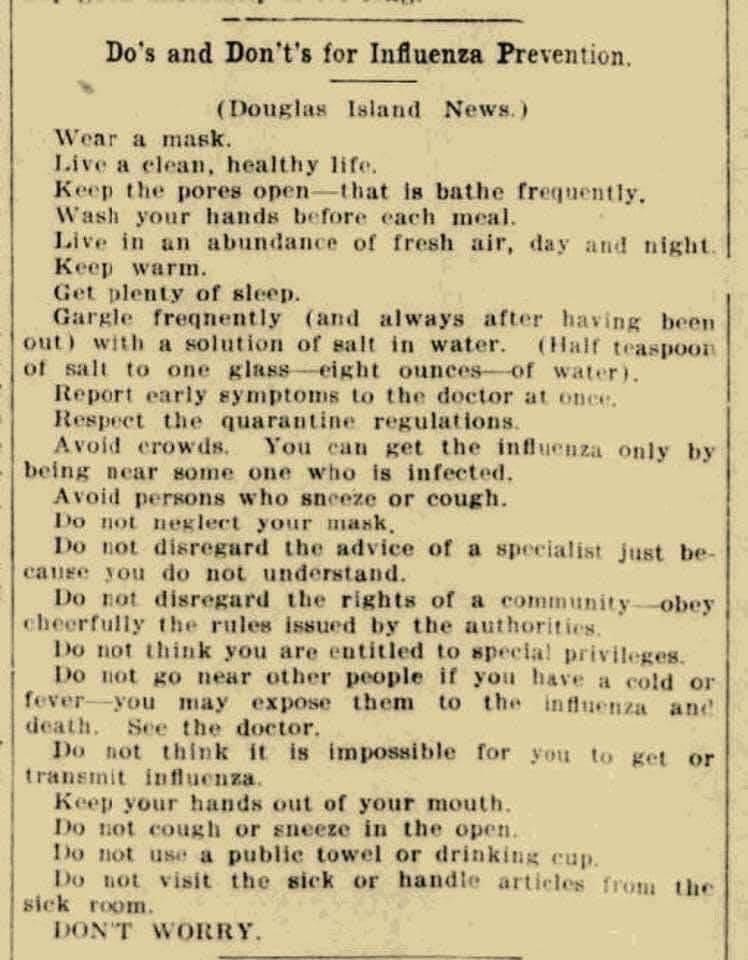Those who do not study history...
Face covering campaign is even worse than we thought; the trends are still going the wrong way, and the CDC publishes more guidelines on how to do "normal things" in spite of COVID-19.
Looking through history books and newspaper clippings from the time of the 1918 flu pandemic reveals that Americans are repeating the mistakes from 1918-1919. Poet George Santayana was correct when he wrote in 1905: "Those who cannot remember the past are condemned to repeat it." (Newspaper clipping image via Bart De Witte.)
Please share this newsletter with others who may want to subscribe. Growing the list of subscribers helps me a lot. Thanks!

A study led by Mayo Clinic researchers concludes that convalescent plasma reduces deaths from COVID-19, especially if treatment is provided within three days of diagnosis. The study, published on a pre-print server and not yet peer-reviewed, was done without a control group, prompting some skepticism about the results. COVID-19 presents an ethical dilemma to researchers, since giving a placebo for a study like this could amount to denying an effective treatment.
The US government spent $675 million to purchase enough face coverings to send two to every American citizen, but instead, they were distributed “haphazardly” to schools, private companies and others without regard to actual need, according to a blockbuster report by STATNews.
The latest analysis by CovidExitStrategy.org (a collaboration of Duke University experts and others) shows that nearly every state in the USA is “trending poorly” or has “uncontrolled spread” of COVID-19. Only New York and some of the New England states are headed in the right direction.

The CDC published guidelines on how to get in-home services completed while keeping safe from COVID-19. Main points: everyone wears a mask and stays at least six feet apart, work out all the details of the work with the service provider before the service provider enters the home, and disinfect all surfaces that the service provider touches after s/he leaves.



